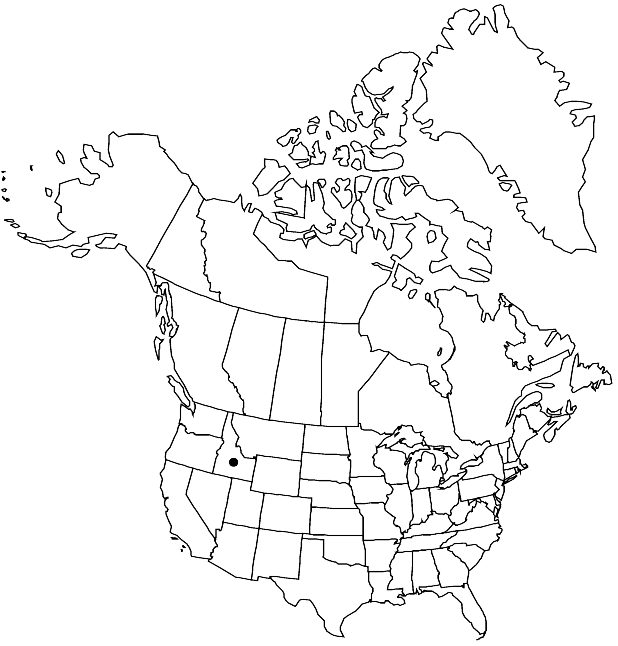Cardamine constancei
Madroño 3: 176, plate 9. 1935.
Perennials; glabrous or sparsely hirsute. Rhizomes cylindrical, slender, to 2 mm diam. Stems erect, unbranched, 1.5–5 dm, glabrous or sparsely hirsute basally. Rhizomal leaves absent. Cauline leaves 4–7, simple, (crowded distally), petiolate; petiole (0.5–)1–4(–5) cm, base not auriculate; blade usually broadly ovate or ovate-lanceolate to ovate-elliptic, rarely obovate, 5–13 cm × 20–65 mm, base cuneate, margins coarsely serrate (with apiculae), or repand to undulate (margins minutely pubescent, apex acute). Racemes ebracteate. Fruiting pedicels divaricate-ascending to suberect, 10–22 mm. Flowers: sepals oblong, 6–8 × 2–2.5 mm, lateral pair slightly saccate basally; petals pink, oblanceolate, 15–28 × 5–8 mm, (claw to 10 mm, apex rounded); filaments: median pairs 8–10 mm, lateral pair 4–6 mm; anthers linear, 2–3 mm. Fruits linear, 2.5–3.5(–5) cm × 1.9–2.1 mm; ovules 12–16 per ovary; style 2–3.5 mm. Seeds brown, oblong, 2–2.5 × 1.2–1.5 mm.
Phenology: Flowering May–Jun.
Habitat: Moist cliffs, wooded creek bottoms, shaded draws, hillsides, moist woods, mixed coniferous forests, granitic soils
Elevation: 400-600 m
Distribution

Idaho.
Discussion
Cardamine constancei is known from Clearwater, Idaho, Kootenai, Nez Perce, and Shoshone counties.
Selected References
None.